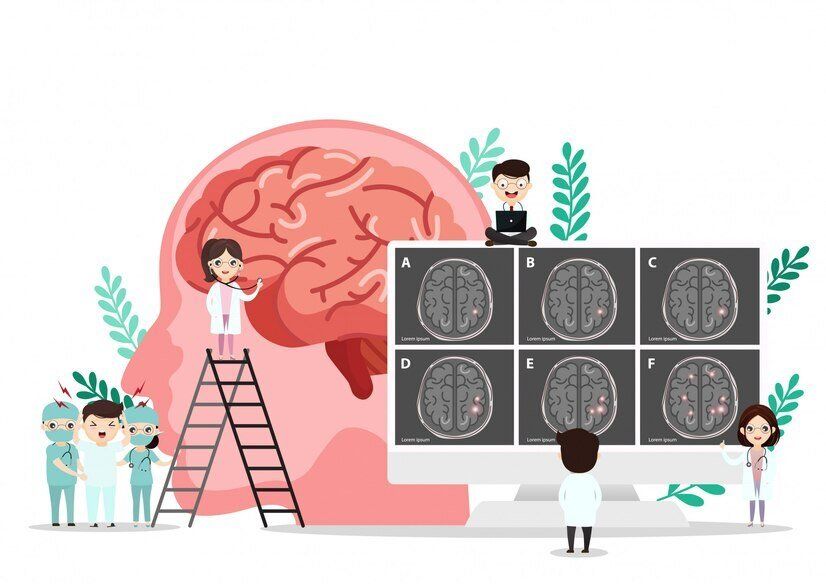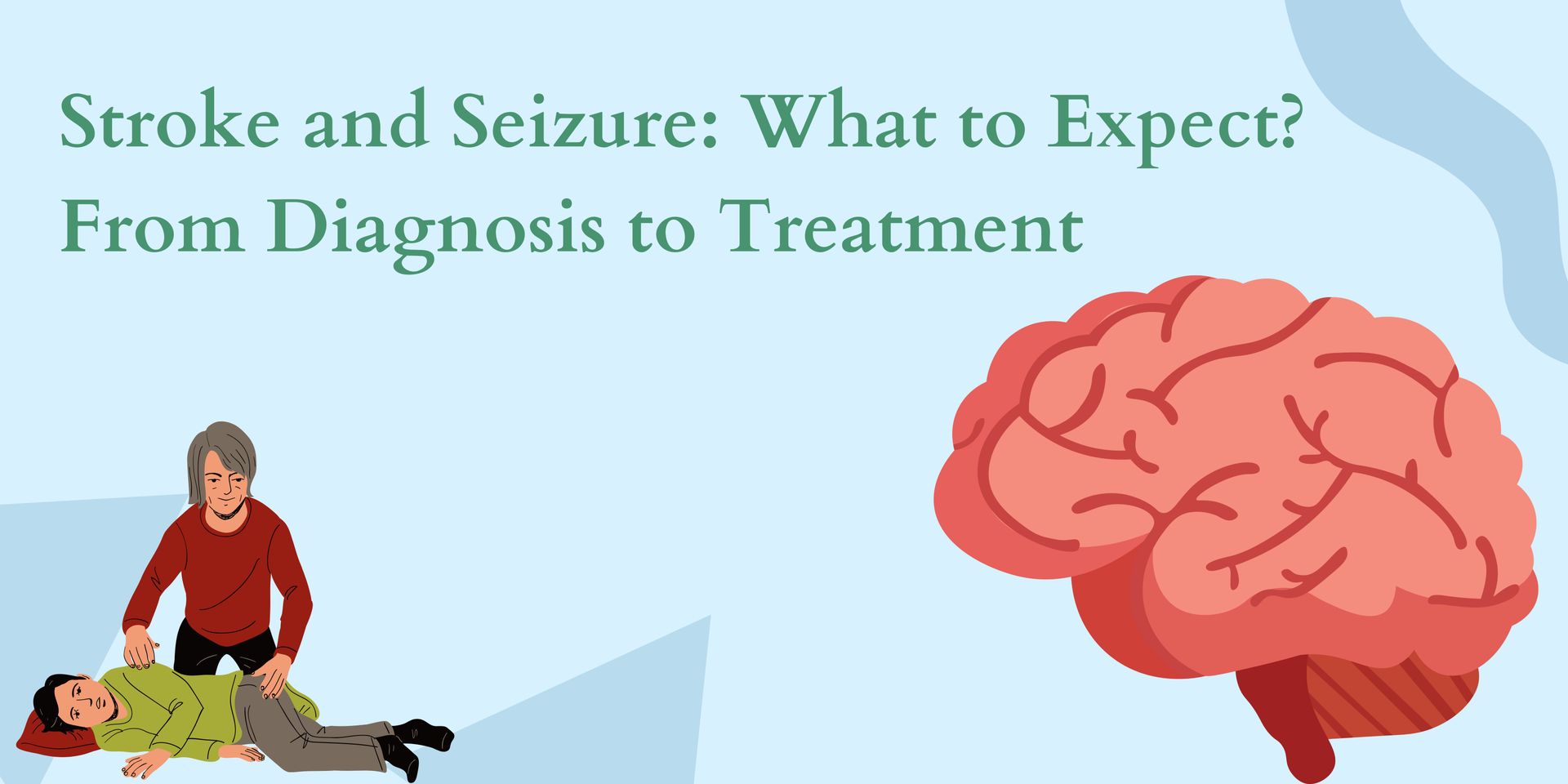Is memory loss a common symptom of Parkinson's disease?
Parkinson's disease is a progressive neurodegenerative disorder that affects movement control. It occurs when there is a gradual loss of dopamine-producing cells in the brain called the substantia nigra.
The primary symptoms of Parkinson's disease include:
- Tremors
- Trembling or shaking
- Rigidity
- Slowness of movement
- Difficulty maintaining balance
- Lack of coordination
Apart from the above symptoms, Parkinson's shows other cognitive symptoms like:
- Depression
- Anxiety
- Sleep disturbances
Talking about Parkinson’s and memory loss, yes, memory loss is a common symptom of Parkinson's. Parkinson’s disease leads to cognitive changes. It causes problems with the brain's functioning including memory and attention. Hence, if these conditions worsen, they may lead to memory loss over time.
Your health is too important to ignore – schedule your appointment now.
Before looking at the treatment and other management techniques, let’s have a look at the cause of memory loss in Parkinson's!
What causes memory loss in Parkinson's patients?

Memory loss in Parkinson’s is due to various factors. The main cause of memory loss in Parkinson’s is the degeneration of brain cells. Parkinson’s disease also affects the regions of the brain associated with memory and thinking.
The accumulation of abnormal proteins called Lewy bodies is also a reason. Lewy bodies when spread to memory and cognitive regions of the brain can cause memory loss and Parkinson’s.
Other factors that can cause memory loss in Parkinson’s are:
- Aging process
- Medications for Parkinson’s
- Depression and anxiety
How can you differentiate between memory loss caused by Parkinson's and dementia?

Memory loss is a symptom of various mental disorders. When you experience memory loss, there are chances that it can be dementia also. Hence, in the below table, we have provided a list that will help you differentiate memory loss in Parkinson’s from memory loss in dementia.
Memory loss and Parkinson’s | Memory loss and Dementia |
Memory loss is mild during the early stages. | Memory loss is prominent and progressive even in earlier stages. |
Affects functions like multitasking and problem solving. | Impairment in all cognitive domains. |
Memory loss occurs later, after the impairment of motor functions. | Memory loss starts early and sometimes precedes any other symptoms of dementia. |
Memory loss in Parkinson’s is very selective, mostly affecting episodic memory. | Memory loss in dementia affects various cognitive domains including episodic memory, language, attention, and executive functions. |
Memory loss progresses slowly. | Memory loss more rapidly impairs daily functions. |
Motor impairments like tremors and rigidity accompany memory loss. | Motor impairments are not most commonly seen together. |
Take charge of your health and your life. Contact us today!
Can medication for Parkinson's disease cause memory loss?
Medications for Prkinson's do have certain side effects. Some medications potentially cause memory loss and other cognitive issues.
It is important for you to know that not all medications are going to cause memory loss. There are certain medications that are associated with a higher risk of cognitive side effects, they are:
- Anticholinergic drugs like trihexyphenidyl
- Dopamine agonists like Pramipexole
Individuals with Parkinson’s and memory loss should work closely with their doctors to find the most effective medication regimen with the least side effects.
The most common question that arises is “Is memory loss in Parkinson's curable?” Keep reading to find out!
Is there a cure for memory loss associated with Parkinson's disease?
As per studies, as of now, there is no cure for memory loss and Parkinson’s. Memory loss and Parkinson's are difficult to manage together as they may worsen over time. There is no specific medication to cure this, but some strategies and approaches that can help improve the condition.
The management of memory loss in Parkinson’s requires a multidisciplinary approach. It includes:
- Optimizing the Parkinson’s medication regimen
- Treat any other underlying factors that cause memory loss
- Bring modifications in lifestyle
- Perform cognitive rehabilitation activities like memory training exercises
Don’t worry!! Keep reading to find out how you can manage the symptoms from getting worse!
Are there any supplements or lifestyle changes that can help with memory loss and Parkinson’s in patients?
There are no specific lifestyle changes that have been proven to completely cure memory loss and Parkinson’s. Certain lifestyle modifications, however, can support cognitive functions.
Let’s take a look at them.
- Regular exercise- regular physical exercise can have a positive impact on cognitive function. It can improve memory conditions.
- Mental stimulation- Engage in mentally stimulating activities. It will keep your brain active. These activities include puzzles, reading, or learning a new skill.
- Healthy diet - Eating a balanced diet, rich in all kinds of nutrients is important for overall mental health.
- Enough sleep- Prioritizing sleep and having it in adequate amounts contributes to better cognitive function and memory.
- Stress management- Chronic stress negatively impacts mental health. Participate in stress management activities like meditation, deep breathing, and hobbies.
Your well-being is our priority - call us to book your appointment today
These lifestyle changes can support mental health functions. However, it is not necessary that they will stop the progression of memory loss and Parkinson’s.
What role do genetics play in Parkinson's disease and its cognitive symptoms?

Genetics plays a significant role in Parkinson's disease. It has a role to play in cognitive symptoms as well. Parkinson’s is characterized by progressive loss of dopaminergic neurons in the brain. It leads to motor symptoms like tremors, rigidity, and bradykinesia.
Several genetic factors are identified to be contributors to Parkinson’s disease.
Gene mutations in SNCA genes are one of the risk factors that cause Parkinson’s disease. These mutations are associated with the aggregation of alpha-synuclein. They form Lewy bodies, the pathological markers of Parkinson’s disease.
The other genes implicated in Parkinson’s disease are LRRK2, PARK2, PINK1, and DJ-1. Mutations in these genes disrupt cellular processes in the body. They affect mitochondrial function. Protein degradation pathways, and oxidative stress response.
There are specific gene variations that increase the risk of Parkinson’s and memory loss. Mutations in the APOE gene increase the risk of Parkinson’s and memory loss progression.
Gene variants like COMT are involved in dopamine metabolism. They are also related to synaptic function and neurotransmitter receptors. They can affect the severity and progression of Parkinson’s and memory loss.
It is important to note that genetics solely does not determine the severity and occurrence of memory loss and Parkinson’s. Lifestyle choices also affect the genetics to cause these symptoms.
What are some tips and strategies for coping with memory loss and other cognitive symptoms in Parkinson's disease?
![]()
Here are the symptoms for coping with memory loss and Parkinson’s:
- Stay organized with calendars and reminders.
- Use memory aids like notes and lists.
- Engage in mental exercises and stimulating activities.
- Break tasks into smaller steps for easier completion.
- Seek support from support groups or peers.
- Maintain a healthy lifestyle with exercise, a balanced diet, and sufficient sleep.
- Minimize distractions and create a focused environment.
- Practice stress management techniques like deep breathing and meditation.
- Communicate openly with loved ones and healthcare providers.
- Follow prescribed treatment plans and medications.
References:
https://www.hopkinsmedicine.org/health
https://alzheimersdisease.net/
https://www.ncbi.nlm.nih.gov/pmc/articles/PMC8073727/
https://www.nature.com/articles/s41572-021-00280-3






